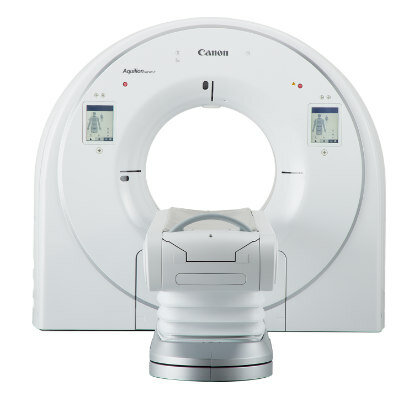Endoscopic Ultrasound Can Provide Value in NSCLC, Finds Study
|
By MedImaging International staff writers Posted on 01 Jun 2023 |

The usefulness of confirmatory mediastinoscopy following tumor-negative results on endoscopic ultrasound still remains debatable among researchers. This procedure is often employed for mediastinal staging in patients with resectable non-small cell lung cancer (NSCLC) who have a high likelihood of mediastinal nodal involvement. Critics argue that mediastinoscopy offers limited nodal metastasis detection, poses potential health risks, and may cause delays in initiating lung cancer treatment. Now, new research has confirmed that endoscopic ultrasound can eliminate the need for confirmatory mediastinoscopy following negative systematic findings in patients with resectable NSCLC.
Researchers led by Máxima Medical Center (Eindhoven, The Netherlands) found that bypassing confirmatory mediastinoscopy and moving directly to lung tumor resection resulted in a minor unforeseen N2 rate - cancer present in the lymph nodes - post-definitive surgical lung tumor resection. It's important to note that the effect of excluding mediastinoscopy from the procedure has not been examined in a randomized setting. Earlier studies also indicate that endoscopic ultrasound exhibits high sensitivity in this context.
The researchers aimed to determine if endosonography alone could suffice for effective mediastinal staging in patients with resectable NSCLC. They analyzed data from 360 patients with presumed resectable NSCLC and an indication for mediastinal staging following negative systematic endosonography. These patients were randomly divided into two groups: immediate lung tumor resection (n = 178) or confirmatory mediastinoscopy followed by tumor resection (n = 182). They utilized a non-inferiority margin of 8%, which previously demonstrated no adverse effect on survival. Unforeseen N2 disease following tumor resection with lymph node dissection served as the primary outcome.
The research team found that mediastinoscopy identified metastases in 8% of patients. Furthermore, they observed a non-inferior unforeseen N2 rate of 8.8% following immediate resection, compared to 7.7% with mediastinoscopy first, in both intention-to-treat (pnon-inferior = 0.0144) and per-protocol analyses (pnon-inferior = 0.0157). The slight reduction in unforeseen N2 rate by 1.03% due to confirmatory mediastinoscopy was offset by a 10-day delay for lung tumor resection, morbidity in 6.3% of cases, mortality in 0.6% of cases, and the requirement of repeat general anesthesia for all patients. In addition, major morbidity and 30-day mortality rates were 12.9% following immediate resection versus 15.4% after initial mediastinoscopy (p = 0.4940). Based on these results, the researchers propose that confirmatory mediastinoscopy following negative systematic endoscopic ultrasound may be unnecessary for these patients.
"Implementation of the current findings prevents patients from morbidity of confirmatory mediastinoscopy, it reduces the lung cancer staging period, and it probably saves health care costs," stated Dr. Jelle Bousema from Máxima Medical Center.
Related Links:
Máxima Medical Center
Latest Ultrasound News
- Diagnostic System Automatically Analyzes TTE Images to Identify Congenital Heart Disease
- Super-Resolution Imaging Technique Could Improve Evaluation of Cardiac Conditions

- First AI-Powered POC Ultrasound Diagnostic Solution Helps Prioritize Cases Based On Severity

- Largest Model Trained On Echocardiography Images Assesses Heart Structure and Function
- Groundbreaking Technology Enables Precise, Automatic Measurement of Peripheral Blood Vessels
- Deep Learning Advances Super-Resolution Ultrasound Imaging
- Novel Ultrasound-Launched Targeted Nanoparticle Eliminates Biofilm and Bacterial Infection
- AI-Guided Ultrasound System Enables Rapid Assessments of DVT
- Focused Ultrasound Technique Gets Quality Assurance Protocol
- AI-Guided Handheld Ultrasound System Helps Capture Diagnostic-Quality Cardiac Images
- Non-Invasive Ultrasound Imaging Device Diagnoses Risk of Chronic Kidney Disease
- Wearable Ultrasound Platform Paves Way for 24/7 Blood Pressure Monitoring On the Wrist
- Diagnostic Ultrasound Enhancing Agent to Improve Image Quality in Pediatric Heart Patients
- AI Detects COVID-19 in Lung Ultrasound Images
- New Ultrasound Technology to Revolutionize Respiratory Disease Diagnoses
- Dynamic Contrast-Enhanced Ultrasound Highly Useful For Interventions
Channels
Radiography
view channel
Novel Breast Imaging System Proves As Effective As Mammography
Breast cancer remains the most frequently diagnosed cancer among women. It is projected that one in eight women will be diagnosed with breast cancer during her lifetime, and one in 42 women who turn 50... Read more
AI Assistance Improves Breast-Cancer Screening by Reducing False Positives
Radiologists typically detect one case of cancer for every 200 mammograms reviewed. However, these evaluations often result in false positives, leading to unnecessary patient recalls for additional testing,... Read moreMRI
view channel
Low-Cost Whole-Body MRI Device Combined with AI Generates High-Quality Results
Magnetic Resonance Imaging (MRI) has significantly transformed healthcare, providing a noninvasive, radiation-free method for detailed imaging. It is especially promising for the future of medical diagnosis... Read more
World's First Whole-Body Ultra-High Field MRI Officially Comes To Market
The world's first whole-body ultra-high field (UHF) MRI has officially come to market, marking a remarkable advancement in diagnostic radiology. United Imaging (Shanghai, China) has secured clearance from the U.... Read moreNuclear Medicine
view channelNew PET Agent Rapidly and Accurately Visualizes Lesions in Clear Cell Renal Cell Carcinoma Patients
Clear cell renal cell cancer (ccRCC) represents 70-80% of renal cell carcinoma cases. While localized disease can be effectively treated with surgery and ablative therapies, one-third of patients either... Read more
New Imaging Technique Monitors Inflammation Disorders without Radiation Exposure
Imaging inflammation using traditional radiological techniques presents significant challenges, including radiation exposure, poor image quality, high costs, and invasive procedures. Now, new contrast... Read more
New SPECT/CT Technique Could Change Imaging Practices and Increase Patient Access
The development of lead-212 (212Pb)-PSMA–based targeted alpha therapy (TAT) is garnering significant interest in treating patients with metastatic castration-resistant prostate cancer. The imaging of 212Pb,... Read moreGeneral/Advanced Imaging
view channelBone Density Test Uses Existing CT Images to Predict Fractures
Osteoporotic fractures are not only devastating and deadly, especially hip fractures, but also impose significant costs. They rank among the top chronic diseases in terms of disability-adjusted life years... Read more
AI Predicts Cardiac Risk and Mortality from Routine Chest CT Scans
Heart disease remains the leading cause of death and is largely preventable, yet many individuals are unaware of their risk until it becomes severe. Early detection through screening can reveal heart issues,... Read moreImaging IT
view channel
New Google Cloud Medical Imaging Suite Makes Imaging Healthcare Data More Accessible
Medical imaging is a critical tool used to diagnose patients, and there are billions of medical images scanned globally each year. Imaging data accounts for about 90% of all healthcare data1 and, until... Read more
Global AI in Medical Diagnostics Market to Be Driven by Demand for Image Recognition in Radiology
The global artificial intelligence (AI) in medical diagnostics market is expanding with early disease detection being one of its key applications and image recognition becoming a compelling consumer proposition... Read moreIndustry News
view channel
Hologic Acquires UK-Based Breast Surgical Guidance Company Endomagnetics Ltd.
Hologic, Inc. (Marlborough, MA, USA) has entered into a definitive agreement to acquire Endomagnetics Ltd. (Cambridge, UK), a privately held developer of breast cancer surgery technologies, for approximately... Read more
Bayer and Google Partner on New AI Product for Radiologists
Medical imaging data comprises around 90% of all healthcare data, and it is a highly complex and rich clinical data modality and serves as a vital tool for diagnosing patients. Each year, billions of medical... Read more




















